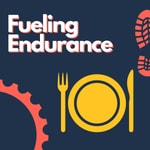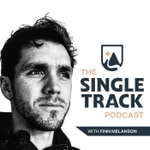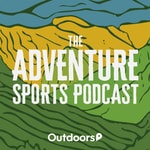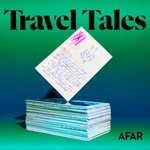Mountain Air – Details, episodes & analysis
Podcast details
Technical and general information from the podcast's RSS feed.
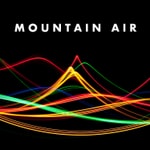

Mountain Air is a podcast about outdoor people. Whether guide, photographer, writer, film-maker, athlete, enthusiast or other, each episode focuses on a different individual with a unique tale to tell. They each have one thing in common: a love of places high, wild, and free.
Recent rankings
Latest chart positions across Apple Podcasts and Spotify rankings.
Apple Podcasts
🇬🇧 Great Britain - wilderness
07/08/2025#95🇬🇧 Great Britain - wilderness
06/08/2025#86🇬🇧 Great Britain - wilderness
05/08/2025#74🇬🇧 Great Britain - wilderness
04/08/2025#54🇬🇧 Great Britain - wilderness
03/08/2025#42🇬🇧 Great Britain - wilderness
02/08/2025#28🇬🇧 Great Britain - wilderness
20/07/2025#85🇬🇧 Great Britain - wilderness
19/07/2025#69🇬🇧 Great Britain - wilderness
18/07/2025#55🇬🇧 Great Britain - wilderness
17/07/2025#30
Spotify
No recent rankings available
Shared links between episodes and podcasts
Links found in episode descriptions and other podcasts that share them.
See all- https://thegreenrunners.com/
31 shares
- http://www.mountainairpodcast.uk
15 shares
- https://www.jrinthewilderness.com/
11 shares
RSS feed quality and score
Technical evaluation of the podcast's RSS feed quality and structure.
See allScore global : 73%
Publication history
Monthly episode publishing history over the past years.
3#07 Maria Granberg: expedition climber, therapist and resident of ‘the pain cave’
Season 3 · Episode 7
mercredi 26 juin 2024 • Duration 01:11:50
> Find galleries, blog posts and many more episodes at www.mountainairpodcast.uk
“My strength is my curiosity, and being pretty good at suffering”
Episode 3#07 sits down with mountaineer, therapist and motivational speaker Maria Granberg, whose achievements so far include: climbing Manaslu (8,163m), and becoming only the second Swedish woman to summit Everest (8,848m) via its North Face.
However, it’s the work that Maria undertakes off the mountain that truly defines her character on it. As a behavioural scientist, she has an abiding interest in how each of us faces suffering, learns to confront our fears, and masters that ever-elusive goal of being “present” in any given moment. These are themes that Maria routinely encounters on her expeditions, which include such challenges as: severe and consistent sleep deprivation, migraines, cramping muscles and a failing digestive system, as well as cognitive impairment from oxygen deprivation - a list of disturbing hardships which she handily condenses into the phrase: “the pain cave”.
Yet, to hear Maria speak about her experiences above 7,000m of altitude (much of which is spent deep inside “the cave”) is to encounter a charming dissonance: she often smiles as she describes them. In this interview, she shares her journey to become the expedition climber that she is today, which includes enduring the stress and competition of teenage athletics, living amongst alcohol abuse, overcoming deep depression, and being rescued from it all by the discovery of thin air and high altitude on Tanzania’s Kilimanjaro (5,892m).
Since that point her love of high and remote places has taken her back to Africa to lead climbs, on a “month-long sufferfest in Kyrgyzstan” (in which she lost 15kg but gained some of the most enduring memories of her life), to pursue qualification and to help heal others as a professional psychotherapist, and to discovery humility, “sheer presence” and the art of “blissful dissatisfaction” in all the places she’s discovered along the way.
> www.mariagranberg.se
> https://www.instagram.com/granbergadventureathlete/
Listen, enjoy, tell your friends, subscribe to the podcast if you get and chance, and thank UKHillwalking.com for their kind support of this series!
[episode recorded on 29/04/24]
00:00 - Introduction
04:50 - Welcome, moving to the mountains, outdoor life in the town of Åre (“the Swedish Tahoe”)
06:53 - Growing up a swimmer and “outdoor kid” in a 250-person mining village (“I didn’t know a single person who did mountaineering, or had even climbed a mountain”), using athletics to “grow and learn” as a teenager and young person. Getting derailed by severe depression. Moving to Tanzania and discovering climbing on Kilimanjaro
10:13 - “Something clicked, and when I came back home I got obsessed with high altitude”
11:06 - Being a sensitive child: “I have a very close relationship with my fears. I get adrenaline very, very easily”. Tackling fears through repetitive exposure: “I couldn’t accept the fact of a feeling holding me back from something that I wanted to do”
14:38 - The pressure of “striving to become the next version of yourself”, to prove yourself all the time. Growing up amongst alcohol abuse, and developing eating issues. Using sports and performance to “compensate for not having a deeper sense of self, and value of self”
19:53 - “I knew what pushing myself really hard felt like, because I had done that most of my life. But entering high altitude… reluctantly you have to shed all ego and enter a space in yourself which is more about surrendering. It was new to me, and I liked not having the control”
22:08 - “It was one of the most humbling experiences I’ve ever had, and a coming home to sheer presence”
23:03 - “It was excruciating” (with a smile)
23:55 - “My strength is my curiosity, and being pretty good at suffering. I like the suffering. I like when I get to that point because I know the gifts of suffering. So I discovered in high altitude that ‘this is my jam’”
26:33 - “A reckoning with the ambivalence of life”
28:28 - Studying to become a behavioural scientist, gaining climbing experience, pursuing expeditions, guiding on Kilimanjaro, 6,000m+ climbing in Kyrgyzstan, learning from the most experienced people, a “six year plan”
32:28 - “I didn’t just gain a life partner, I gained a climbing partner as well… if you see a guy with a big red beard and a loud laugh that is a good cue that it’s him”
34:58 - Pursuing psychotherapy qualifications alongside mountain ambitions
37:13 - “Having a spotlight on me is something that I’ve never truly been comfortable with”, contrasted with sitting in a therapy room and it being entirely about the other person
42:18 - The anxiety of building a career and then stepping away from it in case it all vanishes
44:03 - The best part of a day as a therapist, and the best part of a day filming in the high mountains: living in the moment and feeling sincere connections with others
49:18 - “Chasing another moment” and learning to seek “blissful dissatisfaction”, getting into meditation and yoga when I was about 19,20… and it was the worst experience of my life”, taking 10 years to learn to come to an activity without any specific goals
56:48 - Explaining the “pain cave” of acclimatising to high altitude mountaineering: “in the beginning it felt like a fight, and now it feels like a painful dance”. Migraines, sleepless days and nights, which begin again above 7,000m
59:38 - “I’d eaten an apple and half a power bar in 72hrs. I went up in the middle of the night heading towards the summit and every step I took felt like a max deadlift. I felt like I weighted two tonnes, and my stomach was in cramps. I knew it was not dangerous. It was hard, but not dangerous. I stayed in it for around 5hrs”, watching out for times when you might be cognitively impaired
62:38 - “There are different sufferfests depending on where you are in the expedition”
65:00 - Greatest mountain memory: avalanches, glacier cracks and losing 15kgs on a month-long sufferfest in Kyrgyzstan… but also digging “snow sofas” in total isolation in pristine mountain landscapes
67:38 - All the time, money, freedom… where would you go and what would you do? “I would pack my paraglider, go into the mountains and just learn everything I can from everyone, everywhere”
3#06 Patrick Davies: the diplomat who walked the length of Britain
Season 3 · Episode 6
lundi 11 mars 2024 • Duration 01:02:57
> Find galleries, blog posts and many more episodes at www.mountainairpodcast.uk
“Once you slow down you see it all”
Interview recorded 24/01/24
On the latest episode of Mountain Air, Dan catches up with Patrick Davies, a writer, long-distance walker and charity fundraiser whose latest book “Where Skylarks Sing” recounts a 2250km walk across the UK mainland in the summer of 2021. “Skylarks”, which touches on Patrick’s experiences caring for his father as he succumbed to Alzheimer’s disease, issues of identity and belonging, and the healing power of walking, explores the “hope of finding escape and answers”.
As you might expect, Patrick’s epic walks aren’t limited to 73 days spent walking across Britain, and over the last three years he’s not only traversed 1280km across the Pyrenees (carrying on afterwards to reach Barcelona on foot), but also made a 1120km trek from Strasbourg to the Mediterranean coastline too. What’s perhaps less expected, and makes these achievements all the more unusual, is that Patrick hadn’t done any serious walking until 2021.
Prior to the pandemic, you see, the focus of Patrick’s life was as a civil servant in the foreign office - through which he served from 2013-2018 as the UK’s Deputy Ambassador to the United States of America. His experiences working with the Obama and later Trump administrations led him to write his first book, “The Great American Delusion”. A speaker and commentator on American politics, there can be few people who have had more of a front-row seat over a uniquely turbulent decade for the world’s largest democracy.
Hear about all of this and why, when it comes to long-distance walks of your own, you should “do it, without question” in Mountain Air Series 3, Episode 6.
> patrickjdavies.com
> linktr.ee/patrickjdavies
> alzheimersresearchuk.org
00:00 - Introduction.
02:40 - Welcome. Introducing “Where Skylarks Sing”, recounting 1400-mile walk from Lizard Point in Cornwall to Dunnet Head in Scotland. Reasons for eschewing LEJOG. Personal motivations for the walk and the book.
08:40 - “... about three or four weeks later I found myself in Lizard Point with a very heavy backpack”. Discussing experiences of caring for a close relative with Alzheimer’s disease, fundraising in response.
12:25 - Choosing a more mountainous line: “it seemed a little unfair to miss out the whole of Wales if you’re trying to walk across the country… and it got me into the Lake District as well”. Paring back 2-3kg after three days of walking.
16:40 - “Everything doesn’t have to be perfect at the beginning”.
18:00 - The mentality of a long walk: “It’s a slow pace, it’s a slow rhythm, and it’s repeated… to me it feels a bit like meditation. You just calm down, and slow down”. A revelation to notice things, to see things, where previously the mind would be too busy, “once you slow down you see it all”.
22:40 - Highlights, including: the South West Coast Path, the quiet, open spaces of Mid Wales, the Lake District and (of course) Scotland.
31:30 - Advice to those considering similar walks: “Do it, without question. Once you start it’s addictive”.
34:30 - Previous career as the UK’s Deputy Ambassador to the United States, from 2013 to 2018. Writing “The Great American Delusion”. Working amongst American politics, trying to explain Brexit, witnessing the polarisation of views across the country.
42:00 - “I hanker back to a time when politics was really boring… civil service is about delivering things for the general public”.
46:15 - Recalling two great treks following walking the length of Britain: Biarritz to Barcelona via the Pyrenees (partly following the GR10, partly the haute route between it and the GR11), and from “Strasbourg to the Sea” (involving the GR5).
53:20 - Witnessing the result of serious drought in the Alps.
56:00 - Greatest Mountain Memory: Climbing Morocco’s Mt Toubkal in the High Atlas mountains, without much opportunity for acclimatisation (with predictable results) “my greatest mountain memory is that I don’t really remember much about being on the top, other than swaying a lot”.
56:15 - All the time, money, freedom… where would you go and what would you do? Latin America, to the Andes, and particular Chile’s Torres del Paine National Park.
2#07 David Lintern: the photojournalist
Season 2 · Episode 9
lundi 11 juillet 2022 • Duration 01:06:20
> Find galleries, blog posts and many more episodes at www.mountainairpodcast.uk
Episode 2#07 gets to know none other than multi-talented photojournalist David Lintern. Based in Kingussie in the Cairngorms National Park, David is an outdoor writer and photographer of high reputation. You’ve likely seen his images and read his words across many different magazines and websites that focus on Britain’s hills, mountains and rivers. So, who better to spend an hour with discussing the challenges and rewards of this environment we all love so much?
Having just released his latest book, “Thunder Road: Voices from the Cape Wrath Trail”, David’s keen to describe the landscapes and people discovered along the most famous hiking route in Scotland’s epic north-west, as well as to discuss what he’s trying to achieve in documenting these unique subjects.
He also shares the fascinating story of how a person ends up living the life of an environmental journalist in the Scottish Highlands - a dream job, perhaps, but one which brings plenty of insecurity with its limitless freedoms. From London-based cinema projectionist, to “scruffy musician”, to founder of a children’s charity, David’s journey has taken him from a deeply urban life to one spent amongst the wildest of places. There’s even time to discuss a fateful two-month hike of the Pyrenees and a formative winter mountaineering trip across the Ben Alder range with some deeply eerie details…
Visit www.davidlintern.com to find out more about David’s work, and make sure to catch up with him on Instagram too: @davidjlintern
Listen, enjoy, tell your friends, subscribe to the podcast if you get and chance, and thank UKHillwalking.com for their kind support of this series!
[episode recorded on 26/05/22]
00:00 - Introduction
03:23 - Welcome, “a photographer and writer focusing on human-powered travel, landscape and the environment”, discussing the book “Thunder Road: Voices from the Cape Wrath Trail”
06:53 - Most definitely not “striding forth under self-imposed adversity”, more details of the Cape Wrath experience
13:28 - War games off the Scottish coast
17:33 - “Vanishing Point” photography project, the struggles of being a freelancer during the COVID pandemic, “lots of freedom, but lots of insecurity”
20:13 - Enjoying “the wrestle” of writing, details of an outdoor media career, “esoteric ramblings”
27:38 - “We were all feeling pretty experimental in COVID, weren’t we?”
28:33 - Coming to the outdoors relatively late, discovering the mountains as an adult. A former life as a London-based cinema projectionist, youth music worker, sound engineer, and university lecturer… seeing “literally thousands of films at the National Film Theatre”
33:23 - Becoming a community music leader, setting up the Soundmix charity (http://www.soundmix.org.uk/who-we-are/), working with the refugee council and “unaccompanied minors”, “what can a scruffy musician do?”
35:23 - An “early mid-life crisis” expressed by walking across the Pyrenees in a two-month charity trip, starting to work with the John Muir Trust
38:10 - A passion for cinema, music and soundtracks, performing background music for TV programmes, an interest in analogue machinery
40:13 - Creating electronic music and dub via Projector Records: “to call it a record label would suggest that it actually functioned… it was basically a group of friends that lived in a house in the mid-90s”
42:51 - Some heartfelt words about a love of the outdoors and life in Kingussie, “when you live here you realise that they’re called the grey hills and the red hills for a reason… it’s a special place”
49:39 - “The bit that’s important to me is allowing other people to speak… really I’m the least interesting bit of the equation”.
53:03 - Enriching your life through experiences in the “heavens”. How can we bring those transformative experiences back down to our everyday lives.
54:23 - Greatest mountain memory… a long winter mountaineering weekend in the Ben Alder range, the Lancet Edge, eerie sounds, unsettling footsteps, a golden eagle.
59:23 - All the time, money, freedom… what would you do? A simple answer… and a more complicated one: fixing the gap between recreational hill people, and those that live and work on the land, conservation and shooting estates (“we have big environmental decisions to make as a society… and we’re not able to have those conversations”)
2#06 Rob Woodall: the hill-bagging machine
Season 2 · Episode 8
lundi 30 mai 2022 • Duration 01:07:52
> Find galleries, blog posts and many more episodes at www.mountainairpodcast.uk
Episode 2#06 welcomes a man that may be the most prolific hillwalker in history. That’s because Rob Woodall has spent the past 40 years systematically completing every list of peaks, tops, prominences and trig points in existence. Putting to one side the popular lifetime achievements of the Munros, the Corbetts, the Wainwrights and such; he’s summited all 1,556 “Marilyns” (UK peaks with a relative prominence of 150m), touched at least 6,190 trig points, and even stood atop all 2,271 “TuMPs” on the Welsh mainland (a deeply esoteric list of raised ground with Thirty and Upward Metre Prominences).
Since recently semi-retiring his ambitions have even turned to the list of global “Ultra” peaks, which are those with a topographic prominence of 1,500m. There are 119 in Europe (not including the Matterhorn or the Eiger whose high cols preclude them), none in Britain (poor Ben Nevis), and so far at least 1,515 have been identified across the world. Nobody has come close to completing this list, and Rob doesn’t believe they are “realistically completable by anybody”. But he’s still quietly ticking them off.
His achievements haven’t gone unnoticed, and it’s likely that you will have read about him in the outdoor press… but so many questions remain:
How has he achieved such incredible hillbagging feats whilst being based in the lowland city of Peterborough?
Has his lifelong career in civil engineering given him the map-savvy skills to achieve his goals?
How does he endure so much driving?
What kit does he wear when he’s out in the hills?
Is there any moment of his spare time that isn’t spent hunting down summits?
How do you access a sea stack?
Can microspikes keep you from slipping on guano?
Is he aware of quite how bonkers the whole thing seems to those outside the hobby?
Listen, enjoy, tell your friends, subscribe to the podcast if you get and chance, and thank UKHillwalking.com for their kind support of this series!
[episode recorded on 18/11/21]
Note: as there were a number of months in-between recording and publication, the ever-thorough Rob would like to point out that…
The newly created North Northants unitary authority's top is a new hill! See Mill Hill
There's not even a Hump in East Anglia (there are none east of Northampton's Arbury Hill)
He is now 62
Elbrus, for obvious reasons, is no longer in his current climbing plans
The Africa trip mentioned near the end of the interview was not feasible due to COVID restrictions
Time stamps…
00:00 - Introduction
02:02 - Welcome, “mind-bending achievements”
03:57 - Defining the hill-bagging lists (Rob’s done them all)
09:22 - “Anything which sticks out of the ground in Britain… you’ve stood on top of?”
10:17 - *2021
14:17 - Starting a hill-bagging career in his early 20s, opening up further ticklists (birds, botany)
18:02 - A friendly rivalry with Ken Whyte (who sadly passed away after this interview was recorded, see his obituary here: https://www.peakbagger.com/climber/climber.aspx?cid=7239), the camaraderie of chartering boats with fellow baggers to reach isolated island peaks, cake, whiskey and parties on the tops
20:12 - “It’s not the sort of number that you can get to accidentally”
22:32 - The practicalities of bagging: sleeping in the car, keeping up fitness, mountain running the “Big Three” rounds
27:37 - Bagging the 6,200+ Trig Pillars (“they keep disappearing, a few get re-found which is always exciting”)
32:02 - … nuclear sub base… critical assets that are “rather well defended… 20 years ago the fences were very different”
34:02 - Coping with mammoth amounts of driving: “I’m a big fan of Radio 4”
36:32 - Favourite parts of the UK hills and “spectacularly wet days”
40:22 - Sea stacks, gannet colonies, the October “sweet spot” and microspikes
47:32 - “I’m pretty obsessive, yeah…”
48:32 - Praising the Buffalo Teclite and various phone apps
51:42 - The global “ultras” (1,500m prominence)... which aren’t “realistically completable by anybody”
56:17 - Using local guides
60:32 - “Taking on something when you don’t know if it’s possible or not… you get a real buzz when it’s complete.”
62:02 - Greatest mountain memory… Mount Odin in British Columbia “you can’t really see it from anywhere… it’s grizzly bear country”
64:32 - All the time, money, freedom… what do you do? Disappear into the Andes for a number of months
2#05 Sarah Jane Douglas: the natural-born Highlander
Season 2 · Episode 7
lundi 2 mai 2022 • Duration 01:07:01
Episode 2#05 cosies up with the irrepressible Sarah Jane Douglas. In 2019 Sarah published her first book: Just Another Mountain, an autobiographical story of loss and grief, but ultimately joy, love and empowerment found in the wild beauty of the Scottish Highlands. It was a huge success. So much so that it saw her lauded across the national press and invited onto ITV’s flagship breakfast show for a friendly “baptism of fire” (Sarah’s words) with Lorraine Kelly.
You may also recognise her from across the outdoor press (including this episode’s sponsor UKHillwalking.com), where she contributes everything from gear reviews to in-depth walking features.
What you may not know is that she’s also: a long-term member of the security team at Inverness Airport, a prolific artist and painter, a mother of two, a cancer survivor, a fanatical Corbett wildcamper, Munroist #5764 (“compleated” in 2015), a habitual destroyer of electronics, a hardened instigator (and resolver) of hillwalking disasters, a shameless follower of many soaps, very much a native Highlander, and one of the most passionate, dedicated and candid mountaineers you’re likely to hear on this podcast or any other. She also has an axe.
> Read more about Sarah here: www.jennybrownassociates.com/sarah-jane-douglas.htm
> … and here: smashingcancerintheface.wordpress.com/about
Listen, enjoy, tell your friends, subscribe to the podcast if you get and chance, and thank UKHillwalking.com for their kind support of this series!
[episode recorded on 09/12/21]
> Find galleries, blog posts and many more episodes at www.mountainairpodcast.uk
00:00 - Introduction
02:00 - Welcome, airport shifts and winter escapes to the hills, why Inverness is “the absolute best place in the whole of Scotland to live”
06:50 - It’s not about the bagging
07:50 - “Being up on the mountains soothed me, and made my troubles seem to melt temporarily”
09:07 - Writing “Just Another Mountain”: “Obviously I’m going to have to burn them before I die, because there’s no way I could have anyone reading some of the content that’s in there, let me tell you…”
11:58 - A “baptism of fire” with Lorraine Kelly.
13:00 - What do people find in the book? “They see a lot of themselves in the words that I’ve written… there is always hope as well, no matter how dark and grim life can become, there is a way forward through those troubles and difficulties”
14:40 - A family history, loss, tragedy and childhood climbing (“thears a bairn on tha’ ruf!”)
22:00 - Artwork: “I was always scribbling on my granny’s walls. She would go mental”. A broken ankle and an opportunity to paint again.
29:10 - Celebrating disaster with “gonzo” outdoor writing, lost tents, drenched electronics, milk-clogged Jetboils, crisps for breakfast, weeing all over yourself… “I can’t have nice things, they just get trashed”
42:51 - “The important thing to me is that I am well and that I am restored by the activities I love to do, and I do love the mountains”
45:10 - Being alone in the outdoors, “hill hysteria”, people being “subjected to my singing”, the nightmare of the hillwalking earworm.
50:00 - Foreign trips to the hills, “I always have this yearning to be on the highest spot that’s possible for my own ability”. A meaningful trip to Nepal.
58:00 - Greatest Mountain Memory: searching for a memorial cairn in remote Nepal
60:30 - All the time, money, freedom… what do you do? “I would just go away to the mountains and never come back”, food drops from helicopter pilots, building bothies, “spend the rest of my days just wandering from mountain to mountain… I’d be very happy doing that”
62:45 - An Eastenders-based revelation
65:30 - Household chores… with an axe(“CHOP CHOP CHOP”)
2#04 Renan Ozturk: the mountain filmmaker
Season 2 · Episode 6
mercredi 30 mars 2022 • Duration 48:50
Episode 2#04 is thrilled to sit down with Colorado-based Renan Ozturk to discuss his latest film “The Sanctity of Space”. A climbing film at heart, it not only celebrates the stunning landscapes of Denali National Park, the Alaska Range and the film-makers’ carving of a new skyline route across the “Moose’s Tooth” peak (3,150m)… <deep breath> but also pays heartfelt tribute to Brad Washburn, the legendary aerial photographer whose life’s work provided inspiration for the entire project.
And there’s time for more than that too. Renan - a sponsored expedition climber, landscape artist, and previous “National Geographic Adventurer of the Year” - has had a busy career so far. You may recognise him from his previous film projects “Meru” and “Sherpa” (both 2015), or perhaps from his back catalogue of arresting mountaineering photography. Possibly you’re one of his million-strong Instagram followers, or you met “dumpster diving” at Trader Joe’s in southern California, or he offered you a lift in the “technobago” whilst you were both enjoying your dirtbag climber phase. But don’t worry if not, this interview will provide the perfect introduction either way.
> Read more about Renan here: renanozturk.com, and find him on the ‘gram here: @renan_ozturk
> Find screenings and streaming links for “The Sanctity of Space” here: thesanctityofspace.com
Listen, enjoy, tell your friends, subscribe to the podcast if you get and chance, and thank UKHillwalking.com for their kind support of this series!
[episode recorded on 10/03/22]
> Find galleries, blog posts and many more episodes at www.mountainairpodcast.uk
00:00 - Introduction
03:05 - Welcome
04:14 - “The Sanctity of Space” - Brad Washburn, the sharing of exploration, finding an antique plane, “feeling the magic” in Washburn’s camera
11:20 - “I think what he created still stands up against the highest resolution digital cameras”
11:59 - Gyro-stabilised gimbals
15:33 - The Moose’s Tooth: “… it’s going to be hard to top that experience of drawing a line with our bodies across that beautiful skyline.”
18:40 - “The factors are always stacked against you in the mountains”
19:11 - Top backcountry tip: “...just as long as you always save half your dinner, you’re never going to run out of food”
20:30 - The allure of Denali National Park: “there aren’t many places in the world that are as alive as the Alaska Range”
26:13 - The challenges of film-making: needing “the same optimism you have when you’re doing a climb”
26:58 - “It’s impossible to answer the question of why you climb, and why you suffer, and why you put yourself in these crazy situations… as artists we always want to package it in different ways where the art itself answers the question, these images give people heart-palpitations or goosebumps in a way that you can never do in a conversation at the bar.”
28:48 - Growing up in Rhode Island, discovering mountaineering at College, “I wasn’t one of these kids that grew up with Yvon Chouinard as an uncle”
32:30 - The “technobago”, a duffel bag, a backpack, an “endless summer” of climbing for seven or eight years
34:00 - Painting, not “struggling with technology”, dragging a 10ft long canvas around the landscape of Nepal
39:15 - “Dumpster diving” in Trader Joe’s in southern California, career thoughts
44:07 - Greatest mountain memory: the end of the Mooth’s Tooth traverse “moving for some 30-odd hours… hallucinating without drugs… the summertime in Alaska where it doesn’t really get dark”46:00 - All the time, money, freedom… what do you do? “I’d still be doing what I’m doing now. It’s such a random storm of luck and opportunity that’s led me here”
A quick word about “The Sanctity of Space”…
Season 2 · Episode 5
jeudi 17 mars 2022 • Duration 01:22
A very quick update about the next episode in the series…
> visit thesanctityofspace.com
2#03 Keri Wallace: the Girl on Hills
Season 2 · Episode 4
lundi 28 février 2022 • Duration 01:03:44
Episode 2#03 hears all about a big decision. Exhausted by commuting, frustrated by inflexible work and desperate to spend more time pursuing her love of the outdoors, Keri Wallace stepped away from a 10-year career in science communication and moved with her husband and two young daughters to Glen Coe. She’s never regretted it for a second.
The result of this sizeable life-shift was the founding, in 2018, of “Girls on Hills: the UK's only guided trail, fell and skyrunning running company, designed specifically for women”. Over the past four years, Girls on Hills has expanded from an idea shared between friends, to a multi-faceted guiding company where women can pursue a love of mountain running aided by some of Britain’s most dedicated female runners. It’s not just a business to Keri, but has become a positive force for empowering women in the outdoors and giving female runners the space to connect with nature, with each other, and to excel.
But that’s not to say that Keri herself isn’t a pretty inspiring figure (far from it). Keri’s outdoor CV includes a 10-day solo traverse of the “Big Three” hillwalking rounds of the Bob Graham, Paddy Buckley and Charlie Ramsay (she was recovering from a running injury at the time); posting a competitive time on the mammoth Gore-Tex Transalpine Run; and - perhaps most impressively of all - managing to take her two young daughters wild camping atop Glen Coe…
> Read more about Keri Wallace and Girls on Hills here: girlsonhills.com, and find them on Instagram here: @girlsonhillsuk
Listen, enjoy, tell your friends, subscribe to the podcast if you get and chance, and thank UKHillwalking.com for their kind support of this series!
> www.mountainairpodcast.uk
[episode recorded on 17/11/21]
00:00 - Introduction
02:15 -“Kids’ shenanigans”
05:10 - All about Girls on Hills, transitioning from science communicator to business owner: “a bit of a leap, and a massive financial step backwards… but suddenly life got much simpler”
07:50 - “We saw that lots of women wanted to run”, opening up to each other in the outdoors
10:00 - “The things that you learn in the mountains, in terms of self-sufficiency and confidence, can be applied in your wider life”, running as an accessible, “low skill” sport, the appeal of a “women-specific” running experience
14:15 - Banter, the strengthening of mixed groups, bothies and camping, concerns about physical safety
22:40 - Leading runners in the Glen Coe environment, “… it just looks impenetrable!”
29:35 - A quick look at Keri’s running CV… “I think I’ll do a mountain marathon… how hard can it be?” … it turns out “really, really hard”.
37:02 - A solo, 10-day hillwalking trio of the Bob Graham Round, the Paddy Buckley Round and the Charlie Ramsay Round, raising money for the John Muir Trust and Water Aid (“it made me scared to do these things by myself, and that made me think that I ought to go and do it”)
40:46 - FACT CHECK: Keri is (of course) absolutely correct and the Bob Graham Round comprises the summits of 42 fells.
44:00 - Reaching personal limits on the Gore-Tex Transalpine Run … “when you find it you always think it’s not your limit, and there’s some reason it’s not your limit”
48:55 - Parenting tips: taking kids wild camping (build up to it, be prepared to carry them out, take sweets and give them one on each zig-zag, “we try really hard not to bribe them constantly”)
53:03 - Greatest Mountain Memory: a formative tragedy on “my first ever mountain, which was Ben Nevis”
55:25 - All the time, money, freedom… where do you go? “To apply myself to something, whether it be a race or a challenge… to throw myself into something and give it my best efforts”
58:08 - A final thought on safety in the outdoors. What can the world - and men in particular - do to help others feel safe?
2#02 Zac Poulton: the Fell Top Assessor
Season 2 · Episode 3
lundi 24 janvier 2022 • Duration 01:16:10
Episode 2#02 is in awe of Zac Poulton. Zac is one of the Lake District’s three “Fell Top Assessors”, which means that today, yesterday, tomorrow and every day of the winter season, there’s a 33 per cent chance that he’s walking to the summit of one of England’s highest peaks. The resulting pictures and written reports provide an invaluable resource for hillwalkers, climbers and anyone else venturing out onto the wintery fells. Winning this kind of role means you’re about as dependable on the hill as human beings get.
But that’s only a fraction of the story. Because the more you ask Zac about his career in the outdoors, the more amazing the tales become. He spent a month in Greenland helping to film base jumping barnacle geese chicks. He’s dangled down Alum Pot testing 5G broadcast equipment, he’s lived in vans in Scotland, ditches in the Alps, safety managed Kilian Jornet in Glen Coe, solo climbed Ama Dablam, guided tens of people to the summit of Everest, explored parts of Antarctica, lectured University students, and hallucinated on Wainwright’s Coast-to-Coast.
… and all of this whilst overcoming a fear of heights. If you’ve ever considered a career in the outdoors and are wondering where such a move could take you, Zac’s story could be exactly what you need to hear.
> Read more about Zac Poulton here: www.mtnsafety.co.uk, and follow him on Twitter here: @MTN_Safety
Listen, enjoy, tell your friends, subscribe to the podcast if you get and chance, and thank the excellent UKHillwalking.com for their kind support of this series!
www.mountainairpodcast.uk
[episode recorded on 25/11/21]
00:00 – Introduction
02:58 – Welcome, fell top assessing, safety work, high altitude guiding
04:52 – Recent activities: film safety, 5G testing and live broadcasts, Alum Pot
10:47 – Base jumping barnacle geese chicks in Greenland
16:20 – “… they get focused on what’s going on through the camera and forget about the polar bear that’s stalking them from behind…”
18:26 – The last 10 years: commercial guiding on big peaks, Scotland, life in a van, lecturing, training film crews
22:46 – “Keep saying yes, and keep doing a good job, and the doors will keep opening”
24:24 - Alpine memories: “living in a ditch in a field until the money ran out then hitching home again”, inspired by a being a Scout and reading mountaineering literature “even before I could read”
27:38 – Overcoming a fear of heights, and why it’s key to being an effective guide
36:50 – The pressure of expedition guiding, and learning to decompress afterwards, “I like to think that if they’re complaining about the food, then things are going well”
40:00 – Safety for mountain running events, Glen Coe Skyline with Kilian Jornet, personal running experience
45:40 – “I maybe slept for four hours or so… the hallucinations were quite good”
47:12 – Guiding on Everest, “It’s hurting, but I’ve got a job to do, and these people are probably hurting more. I need to support them”, 45-minutes alone on the summit “not a soul in sight, and looking at the view”
56:20 – Life as a Fell Top Assessor… and “informal, 20-minute crampon sessions”
62:00 – “Parenthood is another of those amazing experiences, so so ‘yes’ to that as well!”
63:00 – Greatest Mountain Memory: solo climb of Ama Dablam “so much of my work is with clients, which I love, but just to be out there by myself, able to move at my own pace and enjoy that environment…”
67:20 – All the time, money, freedom, where do you go? The Antarctic coastline, or explorations of Baffin Island and the Arctic territories
2#01 Sibusiso Vilane: the first black African on the roof of the world
Season 2 · Episode 2
mercredi 15 décembre 2021 • Duration 01:27:45
Hello! And welcome to series two of Mountain Air! It’s an absolute pleasure for this episode to be supported by UKHillwalking.com, and an equal pleasure to be bringing you 87-minutes of conversation with Sibusiso Vilane - an inspirational man with an inspirational story to tell.
In 2003, Sibusiso he became the first black African to summit Mt Everest, a phenomenal achievement given his impoverished roots and lack of mountaineering background, and one that earned him the attention and praise of Nelson Mandela and the wider world. But his story runs far deeper than that. His childhood was one of extreme poverty in apartheid Johannesburg, and later in Swaziland (now Eswatini). Hard work, dedication and the privilege of being able to attend school from age 10 eventually brought him a job as a tourist officer in a nature reserve, a position which made possible a chance meeting that would change the path of his life forever.
Consumed by a passion for mountains and physical challenges, his life story is one that involves continental summits, ultra running, humility, the responsibilities of being a role model, laughter, charity work, motivational speaking, multiple summits of Everest and historical partnerships with... Sir Ranulph Fiennes.
> Read more about Sibusiso Vilane at www.sibusisovilane.co.za
> Visit the podcast at www.mountainairpodcast.uk
Listen, enjoy, tell your friends, subscribe to the podcast if you get and chance, and thank UKHillwalking for their kind support!
[episode recorded on 11/11/21]
00:00 – Introduction
02:16 – Welcome, responding to the pandemic by running (“I ran a full marathon last weekend… it was just dreadful!”
08:30 – The rarest of all mountaineering backgrounds: growing up poor and black in apartheid Johannesburg, then Swaziland (“we never had clothes or three square meals a day”)
12:50 – Life as a “Headboy” in rural Swaziland (“I was 10 years old when I started school”), a multilingual upbringing
19:05 – First steps into the world of work: manual labour, writing letters, a nature reserve, natural knowledge, life as a tourist officer, and a fateful meeting
23:00 – Discovering the Drakensberg (“a vast mountain range, and a beautiful mountain grassland”), John Doble, waterfall scrambling, the start of mountaineering plans, why can’t black Africans do the same?
30:40 - “It will not make sense to my grandmother or my mother who are trying to fend through hardship to bring food on the table… why would I want to go overseas to climb a mountain?”
32:20 – Kilimanjaro: “I got as sick as a dog on day two, all the high altitude symptoms that you can get, I got all of them! But I summited on the most beautiful day, and I looked at that and thought that one day I would want to see the sunrise from the summit of Mt Everest”.
36:50 – “I want to do it for Africa. I want to show the world and Africans themselves that they can do these things.”
40:54 – Climbing Everest (“I can never deceive people that it was easy. It was physically tough. Mentally tough… it can never be explained in words how physically tough it is.”)
50:34 – Reaching the summit (“You are about to be proof that it can be done… you become overcome by your emotions and you don’t believe what is happening.”)
56:30 - “It took me a long time to realise how relevant it was going to be to any other young kid who grows up in Africa without a home”, meeting Nelson Mandela
58:50 – The first black African to climb the Seven Summits (“when you set a standard, how do you keep it as consistent? There’s no way I could be consistent as a role model by climbing just one mountain. I will keep on climbing as long as I live to be looked upon as an example.”)
68:50 – Being changed by mountain experiences (“I still regard mountains as the best ‘university’ I’ve ever attended.”), summiting Everest for a second time… with Ranulph Fiennes.
75:20 – Sitting in a tent with Ranulph Fiennes: “Well if there’s anything else you want to do it’s one of the polar walks” (“When I looked at his hands, which were frostbitten, I thought ‘well, not a good idea…’”)
76:38 - Greatest Mountain Memory: “I looked at this mountain and I just fell in love with it. I was disappointed to learn that it wasn’t Everest, it was Ama Dablam. This is the mountain that calls me to go back to mountains.”, similar experiences with the Matterhorn.
79:32 - *HONK HONK*
80:20 - All the time, money, freedom, where do you go?: “It depends on the season… on the slopes of an 8,000m mountain waiting to summit… sweating profusely running a desert marathon… on a safari in the bush with the family…”

